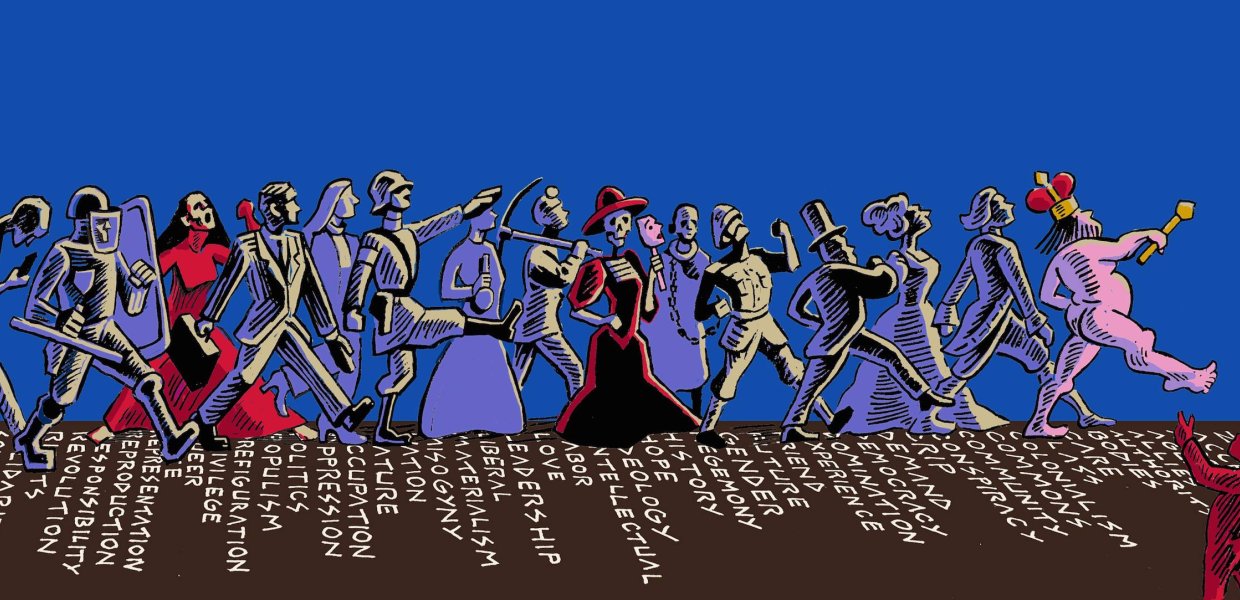Third year doctoral student Clare O’Connor’s work pulls from an eclectic background.
Before starting her PhD in Communication at USC Annenberg in the fall of 2015, O’Connor volunteered with NGOs in Palestine; worked at the Ontario Public Interest Research Group at the University of Toronto; founded OPIRG’s magazine, Actions Speak Louder; was a member of the editorial committee for activist journal Upping the Anti; organized a teach-in prior to the 2010 Toronto G20 summit; and moved to Los Angeles, where she wrote a ten-song album dedicated to the memory of her father.
O'Connor, the recipient of a doctoral fellowship from the Social Science and Humanities Research Council of Canada, works in the area of cultural studies, focusing on American pop music, religion, and social movements. But her work is more than a little influenced by her experience in activism and organizing.
O'Connor's first co-edited book, Keywords for Radicals: The Contested Vocabulary of Late-Capitalist Struggle, was published last year by AK Press. The book collects words frequently used in progressive or activist circles. But it’s more than just a dictionary—instead, the writers address the difficulty of any word having one fixed meaning.
“Part of the goal of this book is to get readers to notice that words don’t adhere to static definitions,” O’Connor said. “Definitions change over time, and these changes correspond to transformations in the broader social field.”
O’Connor co-edited Keywords for Radicals with Kelly Fritsch and AK Thompson, who she first met on the editorial committee of Upping the Anti. While reading submissions for the journal, which O’Connor describes as a “movement-based publication written by and for activists and organizers,” they often found themselves trying to pin down meaning in an author’s word choice. One person’s “community” or “class” might not be another’s.
“As editors, we had regularly found ourselves reading drafts in which word usage and meaning seemed very slippery,” O’Connor said. The book became the logical extension of the discussions they had over the “contradictory and conflicting” ways words were being used and transformed.
They were inspired by Keywords, written by Raymond Williams and originally published in 1976. His book, a solo effort, was written “in response to the transformations he observed taking place within English-language word usage and meaning,” according to O’Connor.
While Williams took a broader view, O’Connor and her co-editors narrowed their focus to a vocabulary of activism: words like allies, colonialism, hegemony, misogyny, privilege, solidarity, and war.
“We felt that it was important to delimit the scope of our investigation to focus on the contests over word usage and meaning that regularly erupt within the radical left,” she explained.
So what is a radical? Well, the word doesn't actually appear as an entry in the book.
O'Connor explained that while they initially put out a call for a piece on the word "radical," ultimately they decided not to include it. "Its taken-for-granted meaning has not begun to break down," she said. While "radical" is used colloquially in different ways (O'Connor gave the example of radical activism vs. radical terrorism), the spirit of the word when used to describe activists and communities on the left is largely agreed upon.
In a time of “alternative facts” and “fake news,” O’Connor sees the interrogation of the vocabulary we use to communicate as vitally important. The goal of the book is to encourage readers to consider the interplay between the words we choose to use, how we use them, and the culture in which we live.
“We hope that people will use this book as a reminder that contests over word usage and meaning are themselves meaningful,” said O’Connor. “Specifically, when deeply analyzed, words reveal themselves to be symptoms of underlying and overarching social contradictions.”
As she continues in the doctoral program at Annenberg, O’Connor sees her activism as something that will only strengthen her interdisciplinary academic work. She cites the inspiration of activist academics in fields ranging from political science and sociology to fine arts and history. “Everything is everything,” she said, quoting Lauryn Hill.
“If asked whether my activism has improved my intellectual work and vice versa, I couldn’t make the case strongly enough.”
